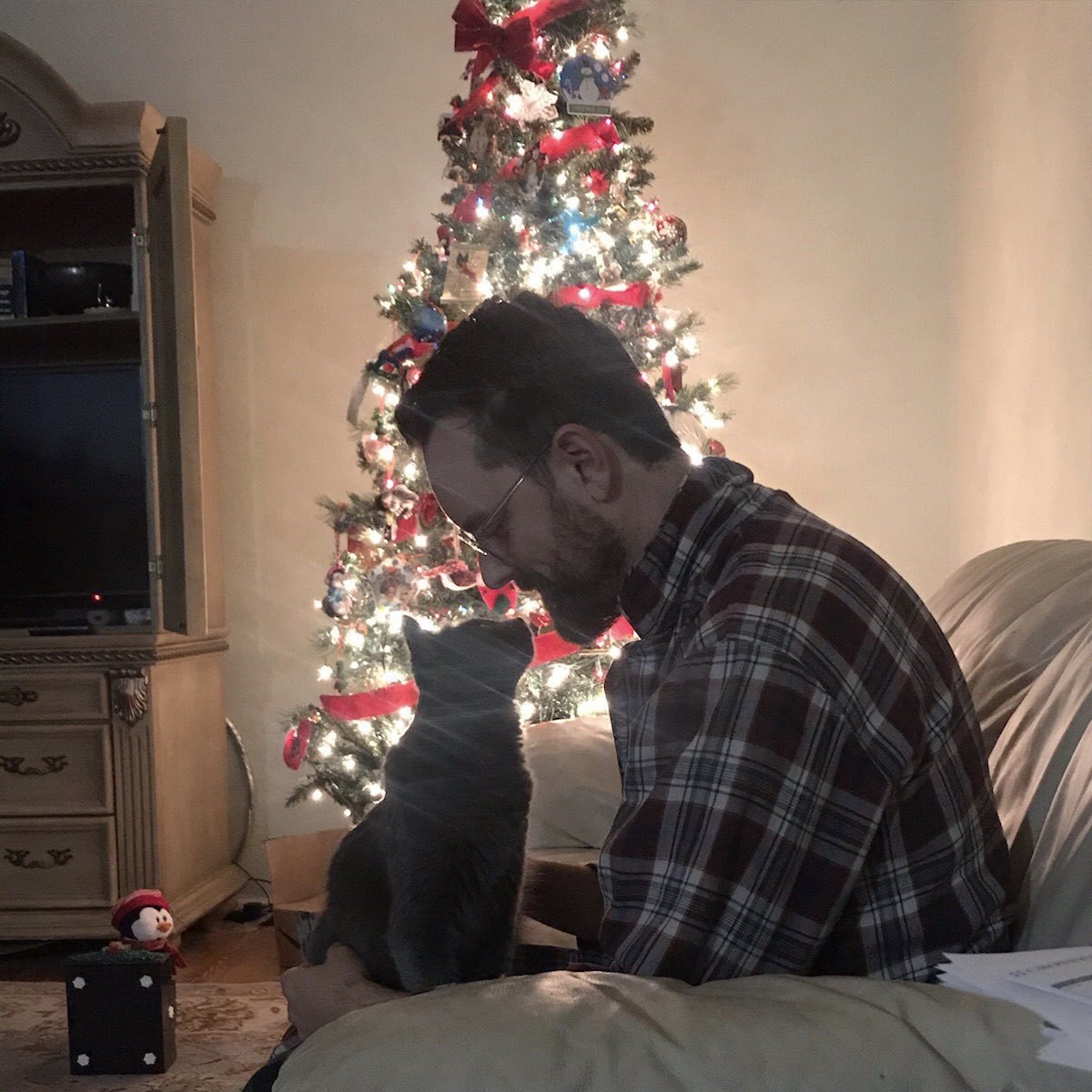We had a great time a few days ago at the Winterhaven Festival of Lights. It was put on for charity this year by these amazing Tucsonans for the 70th time!
Read Ultralearning by Scott H. Young. It’s a great book for anyone wanting to improve their ability to learn.
Last Saturday I went to Cello Christmas 2019 hosted by super-teacher Mary Beth Tyndall. About 40 cellists playing Christmas tunes, a scroll decorating contest, and lots of smiles.

John Calvin: music is “a gift of God”
“…among the other things which are appropriate to recreate man and give him desire, music is either the first or on the the chief ones, and we must deem it to be a gift of God intended for this use.”
From a letter he wrote about worship.
I read Music, Singing, and Emotions: Exploring the Connections in Themelios. What a great essay.
Someone should write a Christmas carol based on Rev 21:16 and call it Angles from the Realms of Glory.
Peter King has written a top-shelf article on Thomas Aquinas’s view of emotions. This is my summary of some of his key findings.
What is an emotion?
Thomas Aquinas believed that emotion is “a semi-autonomous faculty of the soul”. An emotion is something the soul experiences, not something the soul does.
Emotions are reactions you experience when you perceive something. This apprehension of a thing can happen either mentally or physically. A person, for example, can feel joy either by imagining chocolate or by tasting chocolate.
Emotions are reactions, but they can also cause things too. Fear can motivate you to run. It can also make your teeth chatter.
Can we control our emotions?
Although an emotion is a reaction, that is, something causes it, Aquinas thinks we have some control over the emotions we experience. Emotion “is not completely in our power since it precedes the judgment of reason," but “it is in our power to some extent.” King suggests that in this way, emotion is like sight. You can only see what you see, but you can also direct your eyes to look at something. This means that the experience of an emotion or the power of an emotion can be somewhat what controlled (i.e. willed).
One way we control our emotions is through thinking and reasoning. This is because how we interpret things can affect how we feel. Imagine you see a large dog and become afraid. You are afraid because you interpret his size as a danger to you. But if you discover that the dog is a therapy dog used in hospitals to calm children, your fear may change into a desire to pet him. The dog has not changed, only your understanding of the dog. And because your understanging has changed, your feelings have followed. If it only it were always this easy!
How many emotions are there?
Sometimes, we talk about emotion in terms of movement. “I feel love toward my wife,” for example. Borrowing from physics, Aquinas thinks about all emotions as types of movement directed towards good or evil.
Aquinas identifies eleven main emotions. The emotions directed toward what we perceive as good are love, desire, hope, despair, and joy. Emotions directed toward what we perceive as evil are hate, aversion, confidence, fear, sorrow, and anger.
Emotions directed toward (perceived) good
- Love is the emotional stance we have toward something good.
- Desire is the emotional pull we have toward something good.
- Hope is the emotional stance we have for a difficult but attainable good.
- Despair is the emotional stance we have for a difficult but unattainable good.
- Joy is the emotion of having attained something good.
Emotions directed toward (perceived) evil
- Hate is the emotional stance we have toward something evil.
- Aversion is the emotional push we have away from something evil.
- Confidence is the emotional stance we have toward an avoidable evil.
- Fear is the emotional stance we have toward an unavoidable evil.
- Sorrow is the emotion of having attained something evil.
- Anger is the emotion of having attained a difficult or even insurrmountable evil.
Notice the pairs, except for anger, which is unique. Read King’s article to understand why.
An old man named Zecharaiah is filled with the Holy Spirit. He prophesies about the miraculous births of two children: one his son, the other his Savior. And he blesses God. For hope is on the way.
But it it is not a new hope, it is the fully flowered hope of old…
“This flow’r, whose fragrance tender with sweetness fills the air, dispels with glorious splendor the darkness everywhere. True man, yet very God, from sin and death he saves us and lightens every load.” — Lo, How a Rose E’er Blooming
These are among the many lovely and mysterious things we Christians will consider tomorrow when come together to worship God. If you don’t yet enjoy the hope of God in these things, consider joining us at Covenant, or anywhere that Christ is preached.
This is entry 2 of the blogchain Better Leading, Better Meeting.
At the most general level, any good book on leadership will give you insights that you can apply to meetings. At the most specific level, you’ll find resources that share advice for specific kinds of meetings such as family worship, coaching, or teaching. For organizational meetings, Lucid Meetings has created an insightful taxonomy of organizational meetings and offers advice on each kind.
In between these two levels of guides are books that focus on meetings but in a more general way. These books are where you ought to start. They provide advice for any gathering and a framework into which more specific advice can fit.
If you’re not in a hurry, start with The Art of Gathering: How We Meet and Why It Matters by Private Parker.1 It’s very good. If you have an important meeting soon and need some advice and right now, skim Let’s Stop Meeting Like This: Tools to Save Time and Get More Done by Dick and Emily Axelrod,2 and then study it later as soon as you can. If if your meeting is tomorrow, the Economist summarizes the most important points in How to Lead Better Meetings.
Finally, I recommend Five Gears: How to Be Present and Productive When There Is Never Enough Time by Jeremie Kubicek and Steve Cockram.3 It’s not directly about meetings, but it provides basic categories for thinking about the different ways we spend time with others.
Not all learning, however, comes from books. Nothing can replace serving with and under leaders who can show you the way you want to go and are the kind of person you want to be. Leaders like this have blessed me beyond what I can say.
-
Find The Art of Gathering on Worldcat. ↩︎
-
Find Let’s Stop Meeting Like This on Amazon. ↩︎
-
Find Five Gears on Worldcat. ↩︎
This is entry 1 of the blogchain Better Leading, Better Meeting.
You can lead better meetings and engage in them more fruitfully if you can learn to think of meetings more broadly. I find using the word gathering is helpful.
A gathering is any setting in which people connect with each other for a period of time. A gathering may happen accidently at a bus stop or purposely at a bridal shower. A gathering may happen once a year in person or every day on the phone. And in gatherings we do all kinds of things:
- We decide.
- We review.
- We celebrate.
- We worship.
- We confront.
- We explore.
- We learn.
- We experience.
Thinking broadly about meetings/gatherings allows you to discover patterns in human nature that exist across domains: not only in how people think, act, or feel, but in how they do these things together. This means a doctor can learn how to care for patients by watching a mechanic take care of a customer. A dinner party host can learn from a dance teacher.
Meetings are relational events. They are about people first and tasks second. We (1) meet (2). Learning this is an essential step to improving any kind of meeting, and it reveals new sources for wisdom.
👎 Social Network + Like Button - Moderation = Incentive to Game the System. @manton explains in Purchasing Fake Likes.
Among other helpful points, @mwerickson writes:
Unlike generalized “waiting for the world to turn” or “waiting for a miracle,” waiting on the Lord is based upon what we know of who God is – His character – and what God does – His activity.
Productivity is a measure of your output divided by your input.
Output is measured by the importance of the accomplishment to your goals. A person who outputs lots of unimportant stuff is still unproductive. Importance, not sheer volume, is how output ought to be measured.
Input is measured by the time, energy and attention you have available. Sometimes this translates to speed. Other times it translates to ease or sustainability. Big impact, given your limited capacity, is the goal of productivity.
🦃 My daughter loves to choreograph, my son has a lot of energy, and we’re all thankful for the turkey. Happy Thanksgiving!
This is entry 2 of the blogchain TBRI.
When my wife comes home with groceries in the car, the kids and I will help her unload them and bring them into the house. Even the littlest ones participate.
And while I like to challenge them—“Do you want to try and carry that milk by yourself?"—I’m careful not to overburden them. I also empower them to fulfill their task. If it’s dark outside, I can turn on a light. If an item is fragile and unusual, I can show them how to hold it. If it’s a large bag of dog food, we can carry it together.
The Bible says that God has compassion on his children in a similar way.
“As a father shows compassion to his children, so the Yahweh shows compassion to those who fear him. For he knows our frame; he remembers that we are dust” (Psalm 103:13–14).
“No temptation has overtaken you that is not common to man. God is faithful, and he will not let you be tempted beyond your ability, but with the temptation he will also provide the way of escape, that you may be able to endure it” (1 Corinthians 10:13).
TBRI teaches that this principle of mercy + empowerment must undergird the things we ask of kids from hard places. And I think it must undergird all our expectations of others, no matter the kind of relationship (cf. 1 Peter 3:7).
If you owned a trucking company, would you ask a driver to drive if he hadn’t slept for 24 hours? It wouldn’t matter whether the lack of sleep was the driver’s fault or not, you simply wouldn’t require someone to drive who didn’t have the necessary sleep.
Likewise, if a child’s brain is filled with stress hormones—whether you think it should be or not—it’s not right time to have a reasoned discussion about why one shouldn’t flip out over a broken crayon. The driver must sleep before he can drive; the child must calm down before he can reflect.
Getting kids from hard places to do the things they need to do can sometimes feel impossible, and sometimes it is impossible. That’s why getting really good at mercy and empowerment is essential for me.
It has to start with the right attitude. Remembering how merciful God is with me ought to help. And learning more about the effects of trauma is also key. Empowerment is about first knowing what’s going on in a person and then accommodating accordingly, especially according to grace.


